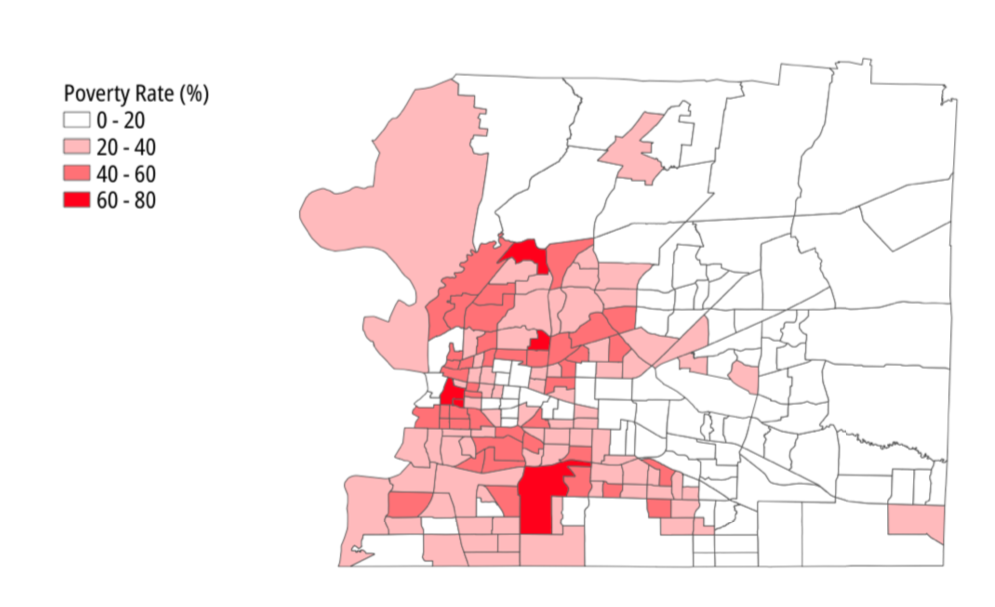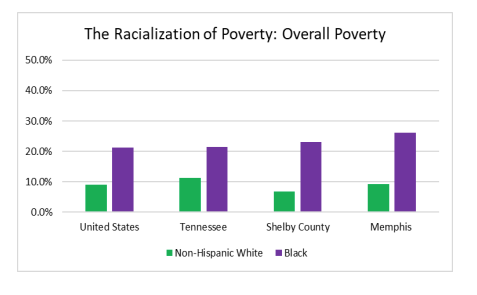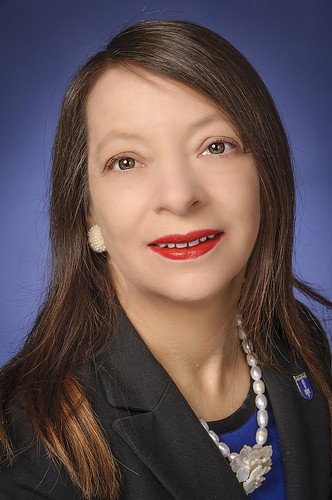 Memphis Poverty Fact Sheet 2020
Memphis Poverty Fact Sheet 2020
The ‘racialization’ of Memphis poverty, according to the latest Memphis Poverty Fact Sheet.
Experts say we must equalize the wealth gap in Memphis but we’re not doing it now.
According to U.S. Census Bureau statistics, the median household income in the metropolitan area is $54,000; Blacks earn about $40,000, whites $75,000, and Latinos $39,000.
Black people in Memphis are 64 percent of the population. Whites make up 29 percent of the local population.
So, while the median white income is nearly double that of most Black incomes, Black people outnumber whites here nearly three to one.
The majority of the city’s poor (according to Bureau definitions) in Memphis are Black. Nearly 23 percent of the 25 percent of people living in poverty are Black, census figures show. According to the Memphis Poverty Fact Sheet 2020, Memphis has the second worst poverty numbers of a major metropolitan area, only behind New Orleans.
 Memphis Poverty Fact Sheet Graph
Memphis Poverty Fact Sheet Graph
According to the fact sheet, the poverty rates for Memphis and Shelby County decreased in 2019 in comparison to 2018. Nonetheless, population sizes for most groups except Blacks in the city of Memphis have increased.
In the Memphis Poverty Fact Sheet, it states that how this community will be affected by COVID-19 remains to be seen, but it is to be expected that poverty will increase in the next few years; even after the pandemic has subsided.
According to the Memphis Poverty Fact Sheet, as a result of the closures and desertion of businesses — particularly tourism, entertainment, and restaurant/bars — consumer spending declined in March 2020 compared to January 2020 in the U.S. by 32.9 percent; in Tennessee by 26.9 percent; in Shelby County by 32.4 percent; and the Memphis Metro Statistical Area by 32.4 percent.
 U of M
U of M
Delavega
“There are a number of things that contribute to the wealth gap — the way that wealth is inherited for instance, people that come from poverty have a much harder way to make any wealth at all,” said Elena Delavega, Memphis poverty expert with the University of Memphis School of Social Work. “If somebody receives a car on their 16th birthday, there is a ton of privilege in that. Even if they do not receive money directly.”
Delavega says that we must work actively to equalize the system, and at this moment we don’t. The poor and working classes do not have social access to wealth as much, therefore, they don’t have the ability to face economic shocks.
When asked what we can do about this, Delavega says that the onus should reside with those in positions of power.
“We are blaming the victims. If you have no wealth, you can work really hard and still you are going to be behind,” she said. “There is no way they can catch up. In Memphis, for example, public transportation is very underfunded, we’re not funding it as a society.”
“The lack of public transportation hurts those who are poor the most. It is a racist economic apartheid. You have Collierville for example — their taxes are lower but they refuse to fund public transportation properly,” said Delavega.
However, some say that not all Black people in Memphis are poor or working class.
“I definitely think Black wealth exists in Memphis,” said Cynthia Daniels, of Cynthia Daniels and Co. “There are pockets of it.”
Her company focuses on offering events to African-American audiences. Daniels said she generated over $2 million in sales for Black businesses in Memphis and across the country during the pandemic. She devised the Juneteenth Shop Black Virtual Experience that garnered $1 million in sales.
“A lot of the restaurants had to close their doors,” she said. “I wanted to create a virtual space for Memphis vendors.”
Daniels was a volunteer for the Memphis Urban League Young Professionals for four years. There, she learned that Memphis had a demand for events geared toward the Black middle-class and wealthy.
Similar to the Memphis Flyer’s 20<30, Daniels throws an awards banquet called 40<40.
“When people are awarded, they get promotions, their companies grow, they get more visibility and representation,” she said.
When asked what we can do about closing the wealth gap, Delavega contends minorities should unify their votes.
“Minorities should know the power of their vote. One vote really does count,” she said. “It’s not so much the color of the person elected; it’s their policies. Racism is a tool of the powerful to divide. Minorities need to work together.”